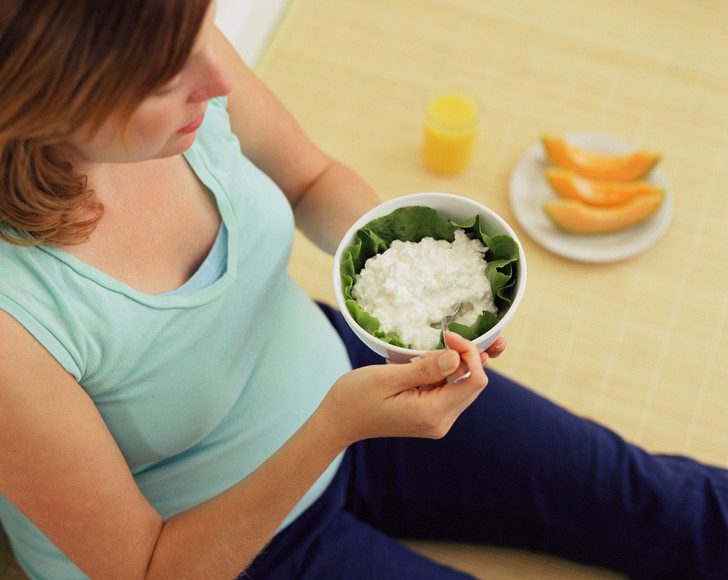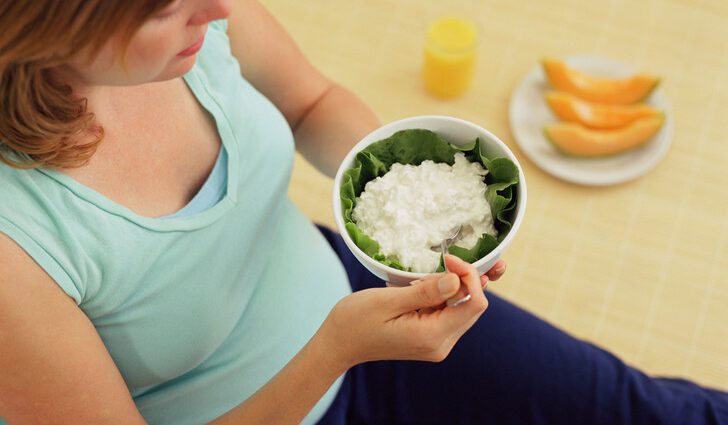Contents
- Drink 15-20 minutes before meals. After eating, only after 2 hours.
- Eat only natural, local products: cabbage, carrots, beets, herbs, garlic, potatoes, cucumbers, tomatoes, etc., cereals – buckwheat, rice, millet, fruits – apples, plums, pears, berries, etc., mushrooms , seeds, meat – chicken.
- Stick to a 1: 3 ratio of cooked to fresh food.
- Do not consume flour, sweets, smoked meats, coffee, milk and dairy products.
- Replace sugar with honey and dried fruits.
- Comply with the laws of combining products:
- Eat slowly, chewing food thoroughly. (Well chewed – half digested).
- The amount of food at one time is a pie plate.
- There are at 9, 12 and 18 hours. No snacks. In between meals, drink water in small sips up to 2 liters per day.

Do not eat in the evening, do not drink in the morning, put on a minimum of clothes, take off your shoes, getting on the scales – what tricks do pregnant women do so as not to get another scolding from the doctor for a set of extra grams and kilograms! What is the Pregnancy Diet?

Do pregnant women need a diet? Previously, it was believed that in no case, and the only dietary rule for pregnant women is “for two”. Today, what is not recommended for expectant mothers. We collected the most popular advice on nutrition for pregnant women, and asked them to comment on two specialists – a nutritionist and an obstetrician-gynecologist.
Comments – Doctor of Medical Sciences, nutritionist, director of the Samara Research Institute of Dietetics and Diet Therapy.
Drink 15-20 minutes before meals. After eating, only after 2 hours.
Nutritionist comment: “Such a pause after eating is painful for many. And it doesn’t make much sense either for the normal course of pregnancy, or for maintaining weight. “
Eat only natural, local products: cabbage, carrots, beets, herbs, garlic, potatoes, cucumbers, tomatoes, etc., cereals – buckwheat, rice, millet, fruits – apples, plums, pears, berries, etc., mushrooms , seeds, meat – chicken.
Nutritionist’s comment: “Overall, not bad. But bananas, oranges have not been canceled. They are useful for pregnant women. “
Stick to a 1: 3 ratio of cooked to fresh food.
Nutritionist’s comment: “There is no sense in such a ratio. Over-regulation of nutrition kills the very idea of healthy eating. Everything that you introduce into your daily routine and diet should not reduce the quality of life. “
Do not consume flour, sweets, smoked meats, coffee, milk and dairy products.
Nutritionist’s comment: “Mistake. Flour (bread, pasta) is good, it protects against weight gain, provides energy, vitamins and dietary fiber. Refusal from milk and dairy products deprives the body of calcium, high-quality protein, vitamins. It is very difficult for a pregnant woman to compensate for refusal from milk. ”
Replace sugar with honey and dried fruits.
Nutritionist’s comment: “Sugar is also possible. You just don’t have to abuse it. “
Comply with the laws of combining products:
Sour fruits (citrus fruits, pineapples, plums, pomegranates, strawberries, etc.) should not be mixed with sweet fruits (dates, bananas, raisins, prunes, persimmons, etc.).
Eat protein-rich foods separately from starch-rich foods.
Vegetables and greens are combined with each other and with any other products, but not with fruits.
Nutritionist’s comment: “All the principles of separate nutrition are not scientifically substantiated and are more harmful than beneficial. So eating meat without carbohydrate side dishes irritates the stomach and can lead to exacerbation of gastritis or peptic ulcer disease.
Eat slowly, chewing food thoroughly. (Well chewed – half digested).
Nutritionist’s comment: “This is good!”
The amount of food at one time is a pie plate.
Nutritionist’s comment: “Also good!”
There are at 9, 12 and 18 hours. No snacks. In between meals, drink water in small sips up to 2 liters per day.
Nutritionist’s comment: “Desirable, especially for those who otherwise find it difficult to sleep, a light snack at night.”
Comments , Ph.D., obstetrician-gynecologist (for several years she has been working on women’s health and environmental issues in organizations such as Médecins Sans Frontières and the United Nations Population Fund, now she is a doctor in Ethiopia).
With the exception of the last two tips, everything else from the area “will not bring harm, but also the benefits have not been proven by enough research.” Therefore, if anyone wants to follow this diet and torture himself – so be it.
But the last tips are harmful – such a regime can significantly increase nausea, pregnant women are supposed to have frequent fractional meals, this is how they feel most comfortable and can take a sufficient amount of food. As a rule, you don’t eat much at a time and you will miss something, you will not finish eating fruit or dairy, for example. This can be caught up with snacks. And in this mode it is impossible.
Then – a lot will not fit into a pie plate. It has long been proven that keeping a diet with a weight loss course during pregnancy is harmful. Everything should be balanced and within reason.
If before pregnancy the body mass index was within the normal range, during pregnancy you can eat the usual amount of food without restricting yourself especially (well, without overeating, of course), it is recommended not to exceed the weight gain of 15-18 kg.
Women who are underweight are advised to gain a total of 12,5-18 kg. This will amount to 0.5 kg / week in the second and third trimester. Women of normal weight are advised to gain a total of 11,5-16 kg., Or 0.4 kg / week in the second and third trimester. Women who are overweight or obese should limit their weight gain to 7-11,5 kg, or 0.3 kg / wk in the second and third trimester.
Dieting during pregnancy is never recommended, even for patients who are morbidly obese. Severe restriction of energy (calorie) intake results in an average weight loss of 250 grams at birth. Due to the increase in maternal blood volume and the construction of embryonic and placental tissues, some weight gain is perfectly normal with a pregnancy diet.
Weight gain within these parameters results in a lower incidence of caesarean section, fewer babies with stunting or macrosomia, and a lower incidence of postpartum obesity.
In any case, limiting yourself to three pastry bowls is delusional, which can lead to low fetal body weight.










